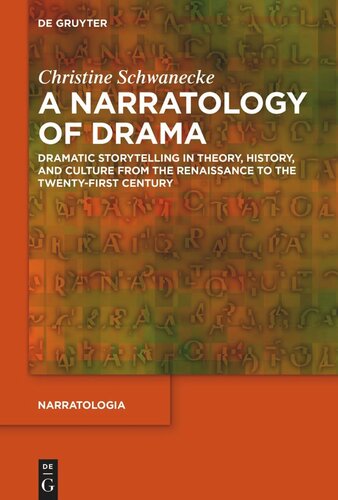

Most ebook files are in PDF format, so you can easily read them using various software such as Foxit Reader or directly on the Google Chrome browser.
Some ebook files are released by publishers in other formats such as .awz, .mobi, .epub, .fb2, etc. You may need to install specific software to read these formats on mobile/PC, such as Calibre.
Please read the tutorial at this link: https://ebookbell.com/faq
We offer FREE conversion to the popular formats you request; however, this may take some time. Therefore, right after payment, please email us, and we will try to provide the service as quickly as possible.
For some exceptional file formats or broken links (if any), please refrain from opening any disputes. Instead, email us first, and we will try to assist within a maximum of 6 hours.
EbookBell Team

4.7
76 reviewsThis volume argues against Gérard Genette’s theory that there is an “insurmountable opposition” between drama and narrative and shows that the two forms of storytelling have been productively intertwined throughout literary history. Building on the idea that plays often incorporate elements from other genres, especially narrative ones, the present study theorises drama as a fundamentally narrative genre. Guided by the question of how drama tells stories, the first part of the study delineates the general characteristics of dramatic narration and zooms in on the use of narrative forms in drama. The second part proposes a history of dramatic storytelling from the Renaissance to the twenty-first century that transcends conventional genre boundaries. Close readings of exemplary British plays provide an overview of the dominant narrative modes in each period and point to their impact in the broader cultural and historical context of the plays. Finally, the volume argues that throughout history, highly narrative plays have had a performative power that reached well beyond the stage: dramatic storytelling not only reflects socio-political realities, but also largely shapes them.